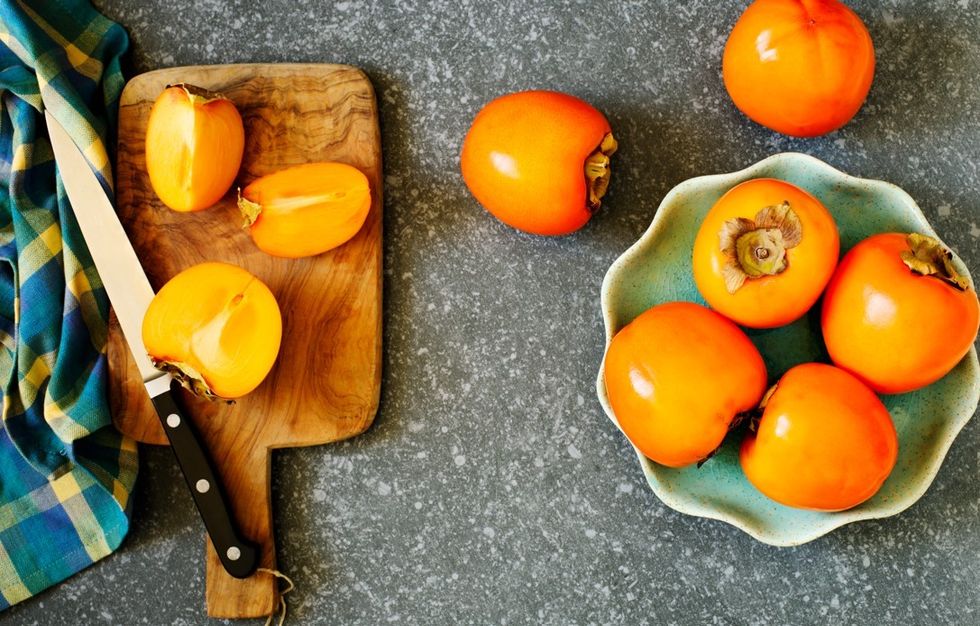Don't Miss
Most Read
Trending on GB News
The last thing people want is to be ill over the festive period, but unfortunately flu and viruses are more common in the winter.
Experts have shared how to boost your immune system and lower the chances of getting ill.
Getting the right vitamins can boost the immune system and one of the best ways to get this is from what we eat.
Nutritionists suggested eating persimmons could be a great way to protect the body.

Persimmons are full of vitamins
GETTY
The lesser-known fruit is full of vitamins A, C, E, K and B6, which can all help towards a strong immune system.
Nutritionists at Bulk explained: "With this delicious winter fruit, don’t judge a book by its cover.
"It appears extremely similar to a tomato, however, its orange, mango-like inner flesh is indulgent and packed with immune-boosting properties.
“Grown from persimmon trees originally in China, the persimmon tastes like no other fruit, boasting rich, tangy and sweetness all at the same time.
“In one 168-gram Japanese persimmon, you can consume 15 per cent of your daily value of vitamin A, and 14 per cent of your daily value of vitamin C.
"Along with generous amounts of vitamin E, K, B6 and potassium- essential for keeping a strong immune system."
A study published by the National Institutes of Health suggested vitamins A, C, D and E are key for a strong immune system and many of these are found in persimmons.
Not only are they good for the immune system, the experts added they are great for overall health and weight management.
LATEST DEVELOPMENTS

Flu is more common at this time of year
GETTY
The nutritionists continued: "There is only 0.3 grams of fat per serving, being an extremely healthy addition to your diet.
“Not only do they contain the essential bodily nutrients, but they are also packed with compounds such as tannins, flavanols and antioxidants helping to flush any bad toxins out of the body.
“Also, its six grams of fibre helps to decrease inflammation, and aid healthy digestion."
Persimmons are in season in the UK between October and December so are generally easier to find at this time of year.








